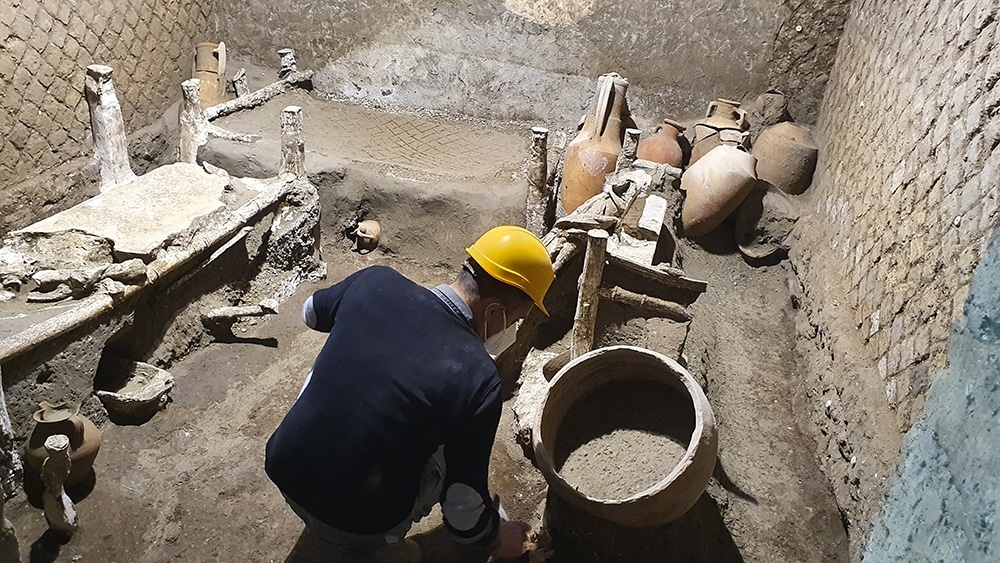
Archaeologists have unearthed the remains of a slave room in Pompeii. This Roman city was destroyed in AD 79 by the eruption of the nearby volcano Vesuvius.
Thousands of people died and were covered with a thick layer of ash and lava, perhaps before they even realized what was going on. The tragic event still appeals to the imagination to this day. And over the years, researchers have come across well-preserved human remains, frescoes and food that often just sat on the table.
Investigators now announce the discovery of a slave room in Civita Giulana’s villa. This villa has been under investigation since 2017 and some remarkable discoveries have been made since then, such as the discovery of a ceremonial carriage with erotic images and a stable with three horses. Now a slave room can be added to the list. The small bedroom of sixteen square meters had three wooden beds, one of which was for a child. In addition, the scientists found a chest containing various metal objects, several ceramic pots and amphorae. These are large vases that were used to store supplies. The researchers believe that the room was not only used as a bedroom, but also as a storage room. This explains the presence of the eight amphorae.
“We get a unique glimpse into the lives of people that have rarely been written about in historical sources,” said Pompeii director Gabriel Zuchtriegel. “This is one of the most exciting discoveries of my life as an archaeologist. No great ‘treasure’ has been found, but as far as I am concerned, the true treasure is the human experience. We see how these vulnerable people lived.”

A floor plan of the various rooms that have been examined in the meantime.
The Pompeii researchers hope to prevent grave robbers from getting their hands on valuable objects. Many illegal excavations have been carried out in Pompeii, where people have secretly taken things away and then sold them on the black market.
Source material:
“THE ROOM OF THE SLAVES – THE LATEST DISCOVERY AT CIVITA GIULIANA” – Pompeiisites.org